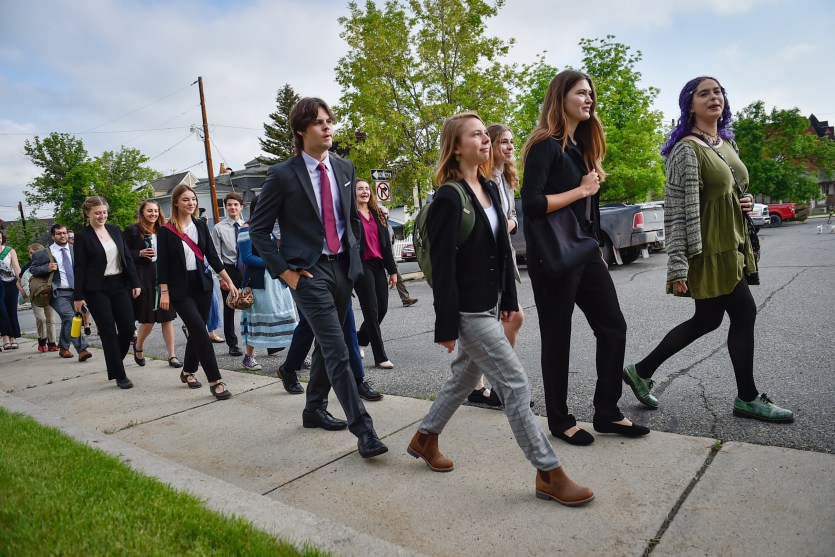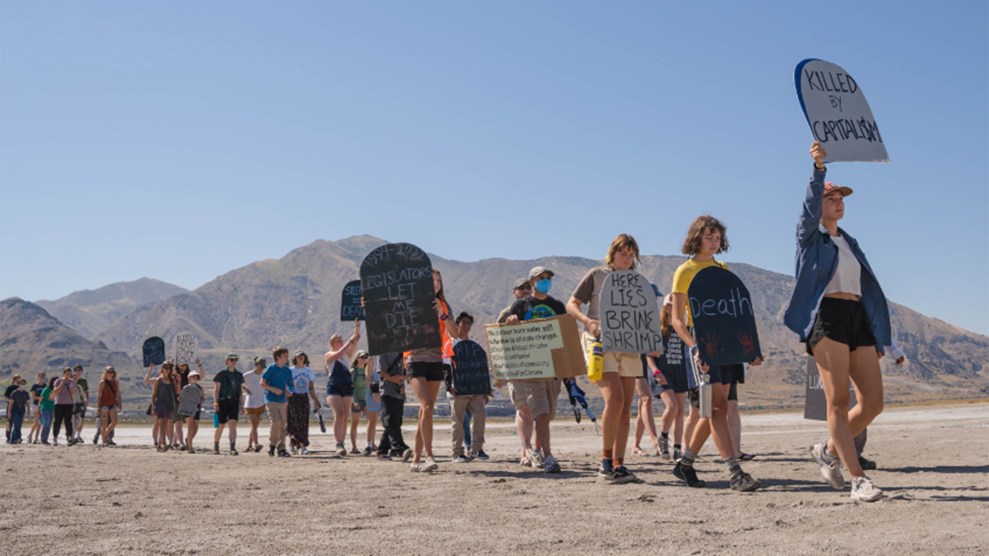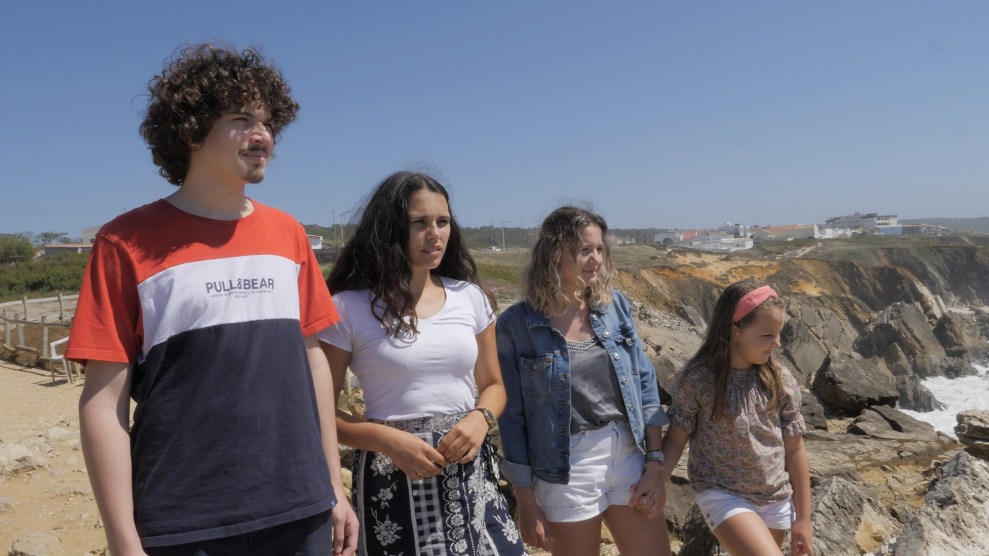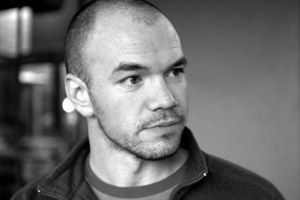
Young plaintiffs in a climate lawsuit seen outside the Lewis and Clark County courthouse, June 12, 2023, in Helena, Mont.Thom Bridge/Independent Record via AP
This story was originally published by The Guardian and is reproduced here as part of the Climate Desk collaboration.
A groundbreaking climate trial came to an early close on Tuesday as lawyers on each side presented a very different picture of who can be held responsible for the climate crisis.
Attorneys representing the lawsuit’s young challengers said Montana officials and agencies must be held accountable for exacerbating the crisis, and thereby violating the plaintiffs’ state constitutional rights. But the defense argued that the climate crisis is a global problem and that if Montana is contributing to it, plaintiffs should work to change that through the legislature.
The trial for Held v Montana began in the state’s first judicial district court in the capital city of Helena last week, marking the first constitutional climate trial in US history.
A ruling will now follow from Judge Kathy Seeley, who has been hearing the case, with expectations that this could take several weeks to emerge.
The case was filed in March 2020 by 16 young Montana residents, then aged two through 18. They allege the state’s government’s pro-fossil fuel policies contribute to climate change and thereby violate provisions in the state constitution that guarantee that the “state and each person shall maintain and improve a clean and healthful environment in Montana for present and future generations”.
“Plaintiffs are asking this court to declare that a stable climate system is fundamental to the protection of their rights to a clean and healthful environment,” said Nate Bellinger, an attorney representing the plaintiffs with nonprofit law firm Our Children’s Trust, in closing arguments on Tuesday.
The lawsuit specifically targets a provision in the Montana Environmental Policy Act that prevents the state from considering how its energy economy may contribute to climate change. In 2011, the legislature amended the law to prevent environmental reviews from considering “regional, national or global” environmental impacts—a provision the original complaint called the “climate change exception”.
Last month, Montana’s legislature amended the provision to specifically ban the state from considering greenhouse gas emissions in environmental reviews for new energy projects. The state’s attorneys said that should have rendered the lawsuit moot, but Seeley, of the first district court in Montana rejected them.
On Monday, Montana regulators who were called as expert witnesses for the defendants said they merely enforce state laws—something Montana assistant attorney general Michael Russell echoed in closing arguments on Tuesday. “What we heard in the plaintiffs’ case is not justiciable controversy, but rather the long airing of political grievances that properly belongs in the legislature, not a court of law,” he said.
But Montana’s constitution does not detail the meaning of a “clean and healthful” environment, according to testimony last week from Mae Nan Ellingson, the youngest delegate to the state’s 1972 constitutional convention which enshrined those environmental rights when called as an expert witness for the plaintiffs.
“She guaranteed that the courts could tell us how to understand and enforce this anticipatory and preventative provision,” Bellinger noted in his closing arguments on Tuesday.
A favorable verdict for the plaintiffs could have implications for Montana’s legislature. Seeley has said in previous court orders that she would not directly order officials to create a new approach to addressing climate change, but that if the challengers successfully make their case, she would issue a “declaratory judgment”, saying officials violated the state constitution.
Throughout last week, expert witnesses for the plaintiffs, including climate scientists and ecologists, explained that to ensure a stable climate system and liveable future, the concentration of carbon dioxide in the atmosphere must be reduced to no more than 350 parts per million by 2100—something the defendants have not argued against.
“This court should declare 350 parts per million is the constitutional standard necessary to protect a stable climate system,” said Bellinger.
Many who packed the courtroom for the closely watched Held v Montana trial have staunchly supported the plaintiffs. The 16 young challengers were met by supporters outside the courthouse each day, and on Tuesday, when Bellinger wrapped his closing arguments, he was met with cheers.
This support has not gone unnoticed by the defense.
“This case has received national attention in part because it has been billed or at least received as a sort of referendum on climate change generally,” said Russell in his closing arguments. “This is not supposed to be a town hall meeting or popularity contest; it’s a court of law in which basic principles like causation and redress clearly still apply.
He argued that though the defense understands that fossil fuels emit greenhouse gases, Montana cannot by itself have an effect on climate change.
“What we heard from every single expert who testified about fossil fuels…is that it’s a global issue,” he said.
But Bellinger said that does not mean Montana should not be held accountable for its role in perpetuating the problem.
“The defendants argue that Montana’s greenhouse gas emissions don’t matter, but irrefutable expert testimony affirms that Montana’s emissions are substantial,” he added. “Montana’s contribution to anthropogenic climate change harms plaintiffs. The impacts of Montana’s emissions are both local and immediate as well as global and long-lasting.”
In other words, he said, when it comes to planet-warming pollution, “every ton matters.”
The trial’s conclusion came unexpectedly early. The plaintiffs and their expert witnesses testified over the course of five days last week, but the state rested its case after just one.
On Monday, two representatives from the Montana Department of Environmental Quality, which is named as a defendant in the complaint, testified. The agency’s director, Chris Dorrington, said he “admired” the plaintiffs and invited them to apply for jobs in his department.
Before the trial began, he said, he was unfamiliar with the Intergovernmental Panel on Climate Change, the world’s leading climate body.
Sonja Nowakowski, the state’s air, energy, and mining division administrator, testified that it is possible to analyze the local climate impacts of Montana’s greenhouse gas emissions, but the law prohibits doing so for energy permits. Asked if emissions degrade Montana’s natural resources, she said she is “not a scientist”.
The state called just one expert witness to the stand on Monday: Terry Anderson, a climate economist with ties to the tobacco industry who touts the benefits of “free market environmentalism”. During cross-examination by plaintiffs’ lawyer Phil Gregory, Anderson said he is billing the state $500 per hour and that he has “perhaps” worked for 25 hours or more.
Gregory attacked Anderson’s credibility, citing multiple errors in Anderson’s expert report which the economist admitted he was later forced to revise. The attorney asked Seeley to strike Anderson’s testimony from the record; she refused but said he had “definitely raised some questions about the numbers”.
Anderson made additional errors during his Monday testimony, Gregory said on Tuesday.
The state was originally expected to ask for expert testimony from climate crisis-denying climatologist Judith Curry, who has charged the state of Montana more than $30,000 for her preparation, DeSmog reported.
Defendants also declined to invite expert testimony from Debra Sheppard, a neuropsychologist who said in her deposition that she has no expertise in how the climate crisis impacts youth mental health, according to the Flathead Beacon.
Similar lawsuits are pending in four other states, and a federal suit, Juliana v United States, is also pending. Climate advocates say the Held v Montana trial could inspire more litigation.
“The fossil fuel industry should be terrified because fights like this are going to pop up across the country as Gen Z and a growing Gen Alpha fight to protect their futures from climate disaster,” Varshini Prakash, executive director of Sunrise Movement, wrote in an email.

















